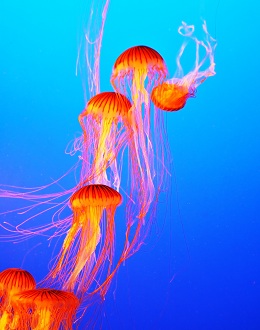How to protect Europe’s seas

Related topics
Environment & climate action Aquatic Resources Marine and maritime and inland water research Belgium Bulgaria Croatia Cyprus France Germany Greece Italy Malta Netherlands Romania Slovenia Spain United Kingdom Israel Environment Russian Federation Georgia Morocco Tunisia Turkey Ukrainedate: 15/05/2014
Project: Policy-oriented marine Environmental Res...
acronym: PERSEUS
See also: CORDIS
Contact: http://www.perseus-net.eu/site/cont...
The European Union (EU)-funded project PERSEUS seeks to solve this by helping provide a complete set of tools for policymakers to design an effective, evidence-based marine governance framework, tailored-made for the Mediterranean and Black Seas.
“The project team tries to provide clear evidence-based answers to how “healthy” the marine ecosystems of the Mediterranean and Black Seas are and how urgent it is to take action against marine degradation. The researchers are also examining whether marine protection is a good social investment”, says PERSEUS project coordinator Dr. Vangelis Papathanassiou.
PERSEUS project holds great significance for European citizens, according to Dr. Papathanassiou, “as it is widely acknowledged that healthy marine ecosystems supply a host of services such as food, recreation, medicine and other resources, which provide direct and indirect benefits to the world’s population".
With the aim of building a deeper understanding of both human and natural pressures on European waters, PERSEUS team is enabling the rapid improvement of marine governance and decision-making processes and has already achieved a number of important milestones.
For example, the scientific cooperation and information exchange between the EU and non-EU countries around the Mediterranean and Black Seas has been significantly enhanced through collaborative research, including joint field work. In addition, scientific events and training courses are contributing to knowledge sharing and networking among partners.
Another significant achievement is the creation of five PERSEUS stakeholder platforms that have actively engaged almost 100 policymakers in the regions, institutions and advocacy groups with an interest in marine and coastal ecosystem management. In this way, PERSEUS project ensures that its set of policy tools is being developed in response to specific needs and concerns.
Furthermore, PERSEUS’s oceanographic information management system has been developed to provide user-friendly, fast access to all the data collected on the Mediterranean and Black Seas ecosystems, with a view to sharing this data among the scientific community.
Last but not least, the PERSEUS team places great importance on creating a wider public awareness. The team has developed two citizen science activities so far - the Jellyfish spotting campaign, in cooperation with a number of other research projects and the Marine LitterWatch, in cooperation with the European Environment Agency.
In the words of Dr. Papathanassiou “our seas have no frontiers. Whatever happens in one country will reflect on the ecosystem of another country, whatever management option is selected in one country has to be communicated to the other. Therefore, ensuring Good Environmental Status (GES) across the Southern European Seas must involve all countries around these seas working together with a regional perspective in mind and in close cooperation”.
